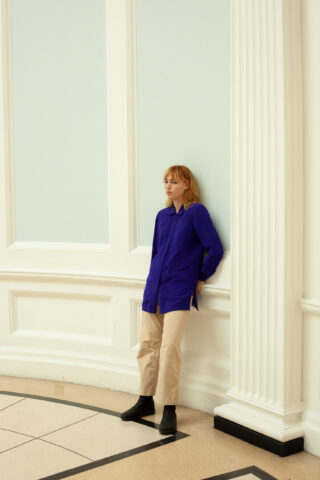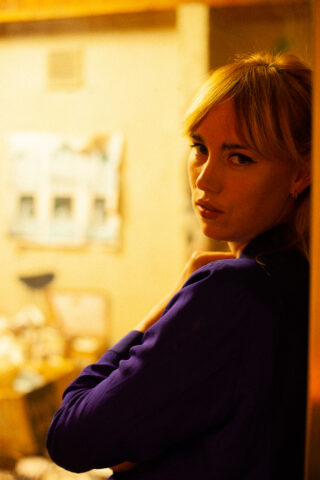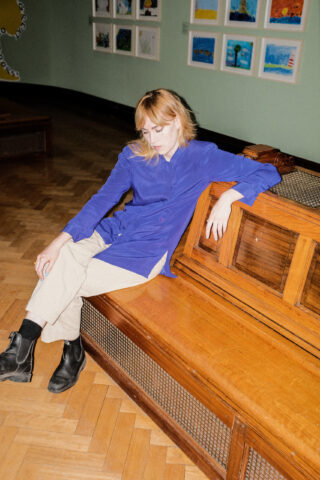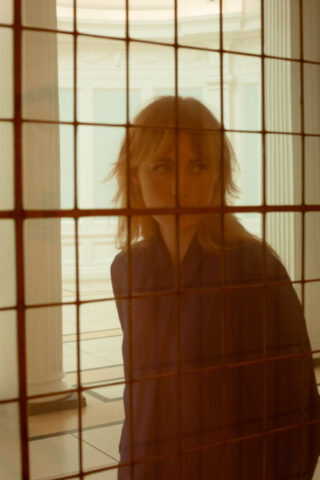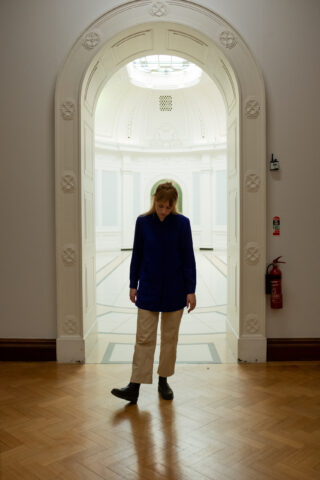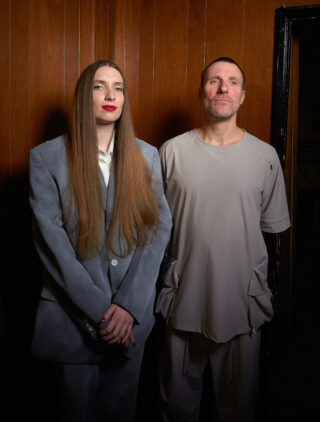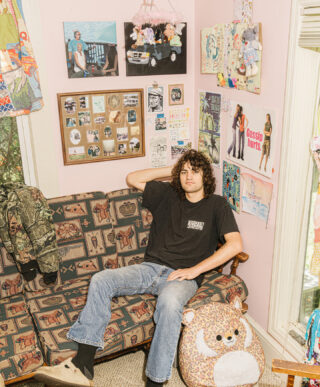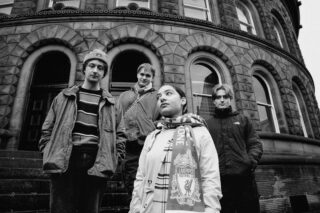The stories Aoife shares about herself, especially her younger years, demonstrates a life informed by and immersed in music. She recalls how her mother played songs by Leonard Cohen and Joni Mitchell on guitar in the home; her father makes fiddles and has a great love of music and enjoys everything from traditional Irish folk to techno. As a child, Aoife went to violin lessons herself, but discontinued them following a difficult period in her life when her parents separated – she associated the violin with the memories of that time. A few years away from becoming a teenager, she forged a strong connection with a different instrument.
“I got an old guitar that couldn’t even be tuned properly,” she says. “My parents saw that I had a big interest in playing it and they encouraged me to keep doing it. I did lessons, firstly with my parents’ friend Klaus who had also made my birth chart when I was a baby! I only figured this out years later. I still have it, and it was pretty spot on.”
In that initial period of picking up the guitar, she practised constantly and learned how to play her favourite songs, mostly by Nirvana, including their cover of Lead Belly’s ‘Where Did You Sleep Last Night?’. Once adolescence arrived, she began writing her own songs and finding her voice.
“I still have the first song I ever wrote saved on my private Soundcloud page,” she laughs. “It was a very powerful experience writing it. I was around 15. I borrowed my friend’s Swedish grandfather’s guitar and I thought it had these magical qualities to it. I played it for a week or two over Christmas and the song just poured out of me. It happened without me realising what I’d done. It was a very emotional experience; I wasn’t crying but tears were streaming down my face. That actually still happens to me sometimes. When I’m writing or figuring out melodies my eyes just stream. Again, it’s not that I’m crying but something is happening, it’s very strange. I feel like that’s an indication that something is meaningful to me when it incites that kind of reaction.”

Protector is filled with songs set in idyllic worlds decorated thoughtfully with lush orchestration and eloquent descriptions of half moon light and swimming off a remote western Irish island. The arrangements are endlessly enchanting, with heavenly flourishes of harp and an irresistibly smooth interplay of keys, strings and guitar that can lull you into a dreamlike state. Yet when you delve further into the songs, the record’s serene sonic settings bear sentiments steeped in insecurities as Aoife navigates her way through self-discovery. It makes for a deeply affecting body of work given the candid revelations throughout, and the impact of Aoife’s words are all the more impactful delivered in her distinct, deep cadence, which holds the weight of experience of someone more than twice her age. She says that for this record, Serge Gainsbourg’s Histoire de Melody Nelson was a reference point for how she wanted the vocals to be conveyed.
She tells me: “I really love the dry vocals throughout that album. That vocal style isn’t necessarily consistent throughout Protector, but when we recorded ‘Emptiness Follows’, for example, I was constantly like, ‘let’s make it sound louder and drier!’ I love when you can feel a person’s presence in a microphone. It’s an intense thing to do because you feel so exposed and vulnerable; you can’t hide behind reverb. I wanted that vulnerability to be expressed in how the vocals were recorded.”
That vulnerability is expressly conveyed across Aoife’s lyricism. “Truth be told / I’m afraid to be alone,” she sings within the first minute of the album’s sublime opening track ‘Way to Say Goodbye’. A few songs later, she poses the question, “Stranger, what am I worth?” on ‘Back To Earth’, a title which bears great significance since Aoife returned from months of touring that saw her open for The New Pornographers, Alex Cameron and The Weather Station. “I don’t think I was ready for the pace of just how busy I’ve been,” she admits. “I mean, I was ready for it in lots of ways, but when I got back from touring around North America last May I couldn’t land. I was on another planet until recently. I don’t know where I’ve been, to be honest. I think getting back to the countryside has helped with feeling grounded again.”




